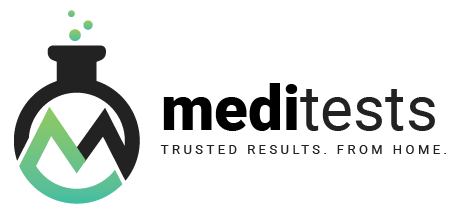Implementing a drug-free workplace program on Tribal lands involves unique challenges and responsibilities. This guide will help Tribal employers navigate drug testing while respecting Tribal law, culture, and sovereignty. Learn how to create a safe, productive, and culturally sensitive environment through thoughtful drug testing practices.
Why Should You Implement Drug Testing on Tribal Lands?
1. Promote Safety and Well-Being
Just like any workplace, drug use can impair judgment, reduce productivity, and increase the risk of accidents. Drug testing helps ensure a safer work environment for everyone, reducing potential hazards.
2. Demonstrate Tribal Sovereignty
By establishing a drug-testing program, you reinforce Tribal sovereignty and self-governance. It shows your commitment to maintaining a healthy, thriving community while respecting the rights of your people.
3. Protect Tribal Resources
Substance abuse can place a financial strain on Tribal resources. Implementing drug testing can help prevent such issues, ensuring the sustainable use of resources for the Tribe’s future.
Key Legal Considerations for Drug Testing on Tribal Lands
1. Tribal Law Prevails
While federal drug laws apply on reservations, Tribal law takes precedence when it comes to drug testing. It's crucial to research and understand your Tribe’s specific regulations regarding drug use and testing policies.
2. Consult with Tribal Leadership
Work closely with your Tribal Council and legal team to develop a drug-testing program that aligns with both Tribal sovereignty and the community’s cultural values. This ensures that the program is both effective and respectful of Tribal customs.
Choosing the Right Drug Test for Your Tribe
1. Consider Detection Needs
- Urine Tests: The most cost-effective option, ideal for routine, pre-employment, or random testing.
- Hair Tests: Best for positions with high safety risks, as they can detect long-term drug use.
- Saliva Tests: Convenient and cost-effective, they eliminate the need to handle urine and provide faster results.
2. Respect Cultural Practices
Some Tribal cultures use certain plants for medicinal or spiritual purposes. When designing your drug testing program, be mindful of these practices and ensure that your testing panels do not unfairly target substances used in traditional ways.
Creating a Compliant and Respectful Drug Testing Program
1. Develop a Clear Drug-Free Workplace Policy
Establish a well-defined policy that outlines:
- Testing procedures
- Consequences for violations
- Available support through Tribal Employee Assistance Programs (TEAPs) and resources like Indian Health Services
2. Promote Transparency and Communication
Educate employees about the drug testing program, its purpose, and their rights under Tribal law. Make sure they understand how the program works and where to seek help if needed.
3. Partner with a Reputable Lab
Choose a lab that respects Tribal sovereignty and has experience working with Native communities. Ensure that the lab can accommodate any cultural or legal considerations, including Tribal-specific testing needs. Medimpex United, Inc. is an example of such a lab.
Moving Forward with Tribal Sovereignty
By implementing a thoughtful and culturally sensitive drug testing program, you not only promote workplace safety but also reinforce Tribal self-determination. Collaboration with Tribal leadership and cultural awareness will ensure the program’s success and respect for your community’s values.
Additional Considerations
1. Tribal Employee Assistance Programs (TEAPs)
TEAPs offer culturally relevant support for employees dealing with substance abuse issues. Make these programs easily accessible to help employees recover and reintegrate into the workplace.
2. Tribal Court Involvement
Tribal courts may have jurisdiction over disputes related to drug testing. Be aware of the role your Tribal court plays in addressing any conflicts or challenges that arise.
Conclusion: Drug testing is an essential tool for promoting safety and well-being within the workplace. By combining drug testing with open communication, respect for Tribal customs, and access to support programs like TEAPs, you can build a stronger, healthier, and more productive Tribal community. Always prioritize collaboration and cultural sensitivity when creating and implementing your drug-free workplace program.



















































































